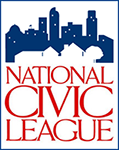The awarding of the 2015 Nobel Peace Prize to the Tunisian National Dialogue Quartet is a powerful reminder of the importance of the work of D&D. From improving neighborhoods to preventing civil wars, we are seeing D&D being recognized more and more as a crucial part of how we build a better future together. NCDD joins the rest of the field in congratulating and thanking the Quartet for its work and contributions. You can learn more about the Quartet’s efforts in the US Institute of Peace‘s congratulatory post below, or by finding the original here.
Tunisia’s Nobel Peace Prize Highlights the Role of Civil Society
 The U.S. Institute of Peace congratulates the Tunisian National Dialogue Quartet on winning the 2015 Nobel Peace Prize for its role in building democracy after the country’s 2011 Jasmine Revolution. The Quartet is a partnership of leading Tunisian civil society institutions – the country’s labor federation, chamber of commerce, lawyer’s union and nationwide human rights organization. It has served as a key mediator in Tunisian political struggles over how to reform the country following the 2011 overthrow of its long-standing, authoritarian regime.
The U.S. Institute of Peace congratulates the Tunisian National Dialogue Quartet on winning the 2015 Nobel Peace Prize for its role in building democracy after the country’s 2011 Jasmine Revolution. The Quartet is a partnership of leading Tunisian civil society institutions – the country’s labor federation, chamber of commerce, lawyer’s union and nationwide human rights organization. It has served as a key mediator in Tunisian political struggles over how to reform the country following the 2011 overthrow of its long-standing, authoritarian regime.
“This award underscores the critical role of a vibrant civil society in building stable, peaceful democracies,” said USIP President Nancy Lindborg. “As Tunisia perseveres with its effort to convert the Arab spring revolution into a more stable democratic future, strong independent organizations like these are essential. And at a time when civil society is under fire in increasingly repressive regimes, this prize celebrates how this Tunisian quartet showed the world that dialogue is more powerful than violence.”
USIP supports Tunisians’ peacebuilding efforts on the local, regional and national level. The Institute has helped Tunisians strengthen and reform civil society and government institutions. It has trained officials of Tunisia’s justice and police ministries on peacebuilding approaches to countering violent extremism, and on managing border security. USIP assists the Alliance of Tunisian Facilitators, a group of civil society leaders who serve as mediators and facilitators to peacefully resolve conflicts in their communities. The Institute supported the first Tunisian-led effort to study the Quartet process and seek to draw from it possible lessons for national dialogue in the region.
The Nobel award comes a week after USIP and the Tunisian Association for Political Studies (ATEP) co-published National Dialogue in Tunisia, a book including interviews with leaders of the dialogue analyzing how that process has evolved. The book is meant to support further peacebuilding and democratization in Tunisia and other countries.
USIP has hosted key Tunisian leaders, including Sheikh Rachid Ghannouchi, the leader of Ennahda, the country’s leading Islamist party, and President Beji Caid Essebsi, to further the cause of pursuing democratic reform through peaceful means.
You can find the original version of this USIP blog post at www.usip.org/publications/2015/10/09/tunisia-s-nobel-peace-prize-highlights-the-role-of-civil-society.









